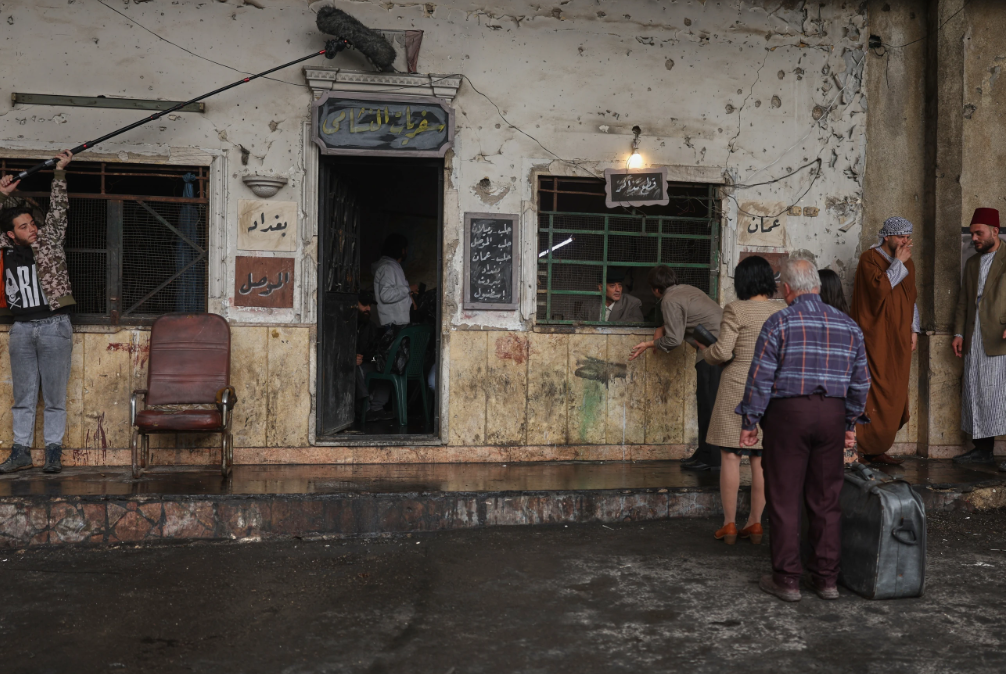Young talents have bagged most of the prizes awarded during the 24th edition of the National Egyptian Film Festival in its two competitions: best feature film, and best short film, documentary, and animation.
The festival, organized by the ministry of culture to support the Egyptian cinema with money prizes worth 1.2 million Egyptian pounds, was attended by Minister Dr. Ines Abdel Dayem. At the beginning of the ceremony, the festival paid tribute to the late artist Samir Sabri, whose pictures were raised in the big theater, at the Cairo Opera House. During a keynote he addressed, Critic Kamal Ramzi said, “the late artist was indeed a man of festivals who supported all the cinema events in the country.”
The festival reflected the status of the Egyptian cinema in the past year on the level of production and quality. This edition saw the participation of 15 out of 24 feature films that were produced in 2021, while 92 movies competed in the short film, documentary, and animation contest.
The minister said the National Egyptian Film Festival is a major contributor to promoting the role of cinema in highlighting and addressing social causes and enhancing the national identity.
He said that cinema was and will always be a means to spread awareness and build a strong, coherent society.
In the beginning of the ceremony, as part of the ‘Eternals’ program dedicated to honor prominent artists, the minister paid tribute to four major figures in the Egyptian cinema: Rajaa Hussein, Abdelaziz Makhiun, and film editor Rahma Montaser, in addition to late director Abdul Qadir al-Talmasani.
The festival also released four books that highlight the journeys of the four figures.
Young talents won most of the prizes in the feature film contest overseen by a jury headed by Director Inas El Degheidy. ‘Al Aaref’ and ‘Abu Saddam’ won the biggest number of prizes; the first won five awards: best direction (Ahmed Alaa al-Deeb), best actress (Carmen Bsaibes), best montage (Ahmed Hafez), and best sound (Ahmed Abu al-Saad), in addition to the best production award.
The second won best actor (Mohammed Mamdouh), best supporting actress (Zeina Mansour), and the second-best production award. ‘Abu Saddam’ director Nadine Khan, daughter of late director Mohammed Khan, won the best direction of first work award.
Nadine expressed her gratitude for this tribute. “It’s very motivating. I dedicate this tribute to the Egyptian cinema, filmmakers, and to my father’s soul. I am so proud of his artistic journey; I learned a lot from him,” she told Asharq Al-Awsat.
The ‘For Rent’ movie won the best script award (Islam al-Sayed), and the third best production award; ‘Moses’ won the best cinematography award (Hussein Osr) and best production design (Ahmed Fayez); ‘Human and Mongoose’ movie won the best wardrobe award (Ines Abdullah), and best music award (Moudi Imam). Actor Ahmed Dash won the best supporting actor award for his role in “The Court” movie.
The jury also awarded a special prize to actresses Layla Elwi and Isaad Younis for their roles in the film ‘200 Pounds’.
Inas El Degheidy said the festival’s awards went to those who deserve them. “We didn’t give a prize to someone who doesn’t deserve it. We chose good works made by young filmmakers in their first or second experiences. They presented good movies with high artistic potential.
“But the common problem among all the participating works was the weak script. In fact, we considered suspending the best script award, but we didn’t to encourage the industry. We also noted the small number of participating movies, and the shrinking productions. We used to produce around 70 films every year in the past decades, which indicates a major problem that should be considered carefully.”
The short film awards, whose jury was headed by cinematographer Said Shimi, were also bagged by young filmmakers. Director Bassem al-Turki was loudly applauded when he took the stage to receive his best short film award for his movie ‘Illusions of the Locked Room,’ which he wrote, directed, and montaged despite his disability.
Director Nabil al-Shazly won the best long documentary award for his work ‘Crocodiles of the Nile’.
“I don’t mind screening my movie for free on cable channels to reach the widest audience. This is the true award,” Shazly told Asharq Al-Awsat.
The festival used to screen all the participating movies to the public before announcing the awards, however, this year, it only screened the winning works one day after its closing ceremony.
“We honor the winning movies by screening them to those who didn’t have the chance to watch them, and those who want to discover the reasons behind their success. We also planned seminars to discuss the winning works with their makers,” Kamal Ramzi, head of the festival, told Asharq Al-Awsat about the screening decision.
Ramzi said he ensured the competing movies get the best evaluation, noting that the awards were a happy surprise for the young filmmakers who are making their first steps in this industry. “We were also keen to honor fewer productions compared to previous editions, to add more depth and value to the tribute.”











